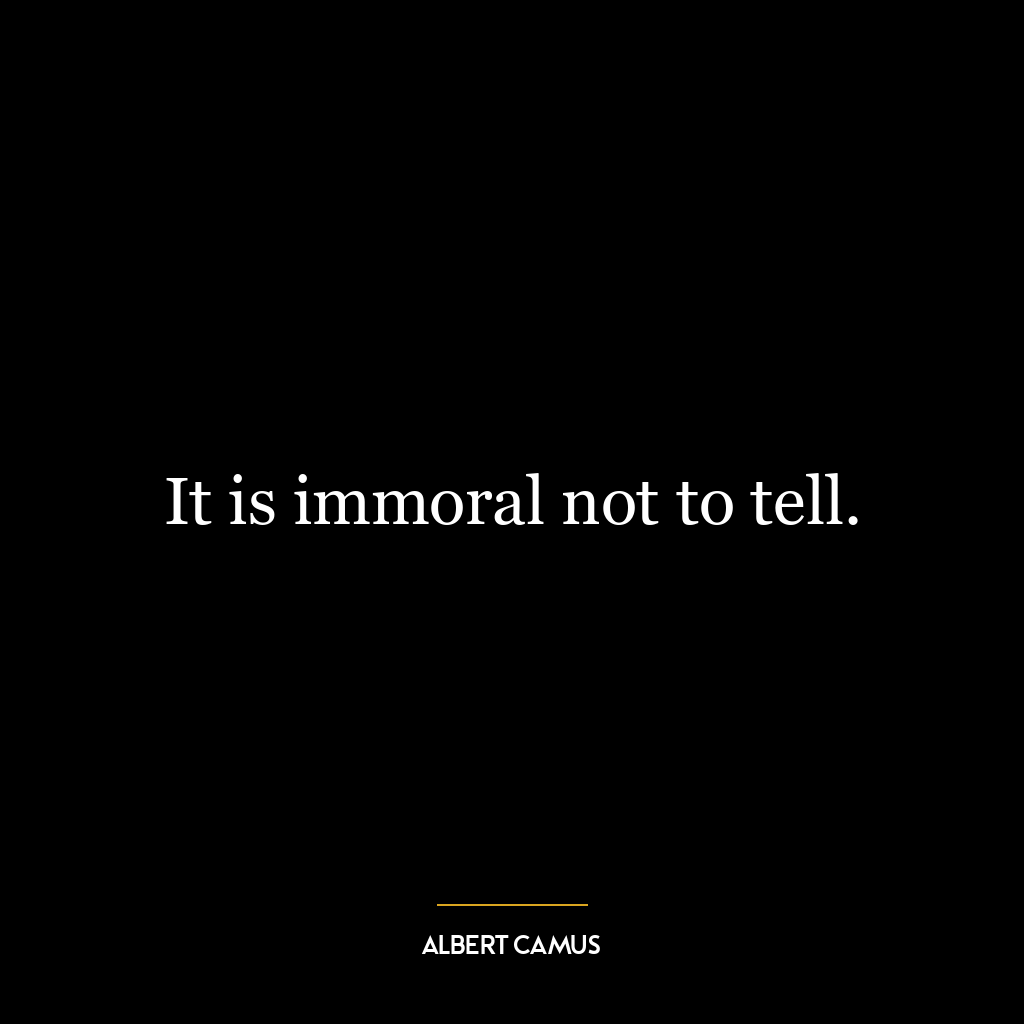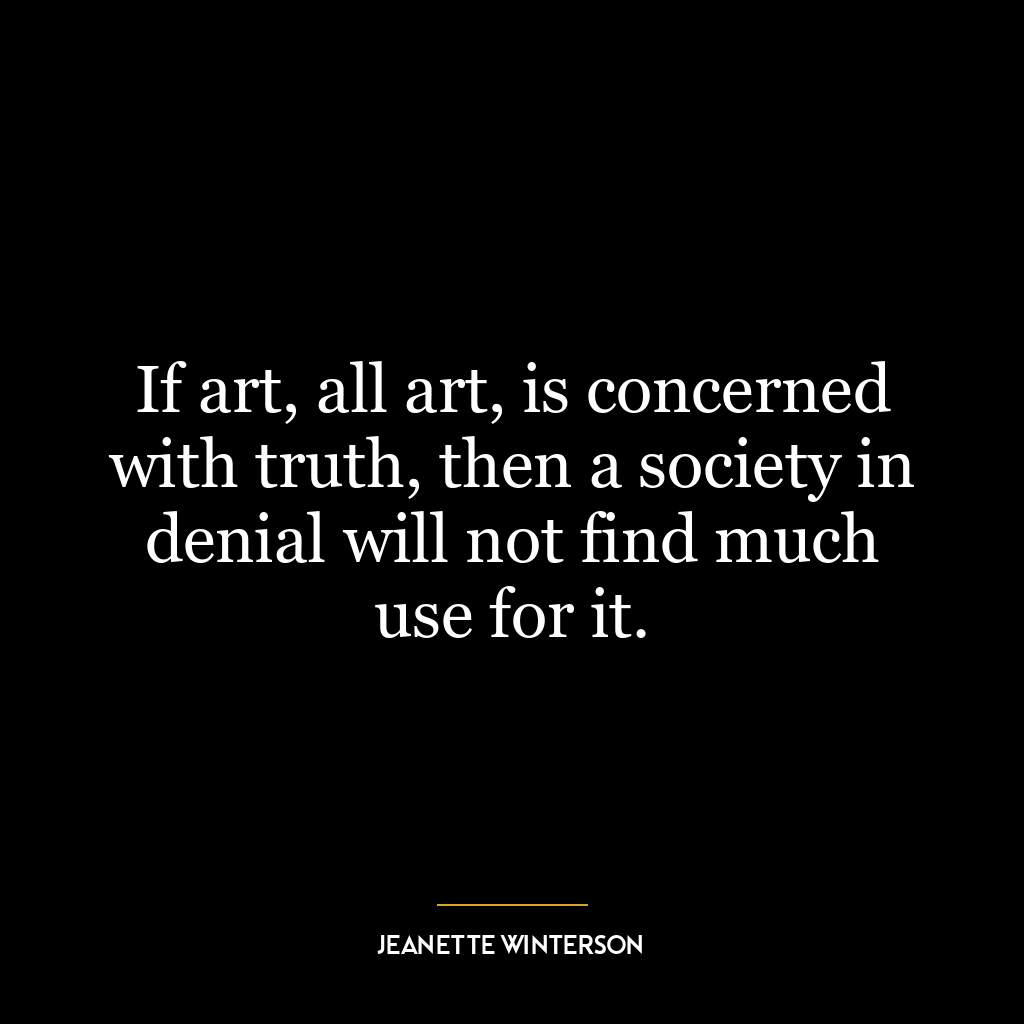It is immoral not to tell.
It is immoral not to tell” is a statement that emphasizes the importance of honesty and transparency in our interactions with others. It suggests that withholding the truth, whether through outright lies or simply by omission, is not just a breach of trust but a moral failing. This quote places a high value on truth, suggesting it is not just a virtue but a moral obligation.
In a broader sense, this quote can be interpreted as a call for accountability. It implies that if we are aware of wrongdoing, we have a moral duty to speak out rather than remaining silent. This could apply to a wide range of scenarios, from witnessing a crime to observing unethical behavior in the workplace.
Applying this idea to today’s world, it could be seen as a commentary on the importance of transparency in our institutions and governments. In an era where misinformation and ‘fake news’ are prevalent, the moral duty to tell the truth is more important than ever. It’s a call for individuals, corporations, and governments to be honest and open in their dealings and communications.
In terms of personal development, this quote could serve as a reminder of the importance of honesty in our personal relationships. It suggests that being truthful with others is not just about maintaining trust, but is a matter of personal integrity. It also underscores the importance of speaking out against injustice or wrongdoing, even when it is uncomfortable or inconvenient to do so.
Overall, this quote is a powerful statement on the value of truth and the moral duty we all have to be honest and transparent in our interactions with others.















